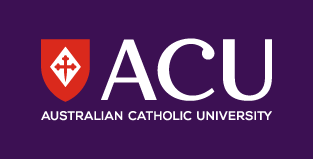Frequently Asked Questions
How do I apply for a scholarship?
Go to ACU Scholarships and select from one of the below options:
Log in type | Use this log in if you are |
Future student sign up | Not an ACU student yet, and you haven’t created a scholarship account |
Future student log in | Not an ACU student yet, but have created a scholarship account |
Current student log in | Already an ACU student |
Once you have created your account, you can start applying for scholarships! Simply click on the ‘apply now’ button next to the scholarship you want to apply for to start your application.
You will be led through the application steps, and once you submit your application, you will receive an email confirming your submission.
Can I apply if I’m not an ACU student yet?
Yes, you can! You do not have to be an ACU student; you don’t even have to have applied to ACU yet. So long as you plan on coming to ACU you can apply for ACU scholarships.
When do applications open and close?
Semester 1 applications open from 1 August and close on 1 March the following year.
Semester 2 applications open from 1 June and close on 31 July.
This is just a general guide; for specific open and close dates, visit the ACU Scholarship browser.
How many scholarships can I apply for?
There is no limit to the number of scholarships you can apply for. We encourage you to apply for all the scholarships that you meet the eligibility requirements. The more applications you submit, the greater your chance of receiving a scholarship!
Do I need to be at the top of my class to be considered for a scholarship?
No. Scholarships can also be awarded based on your:
- contribution to community
- leadership skills
- financial need
- difficulties accessing education (e.g. as a result of a medical issue or living in a remote area)
When will I find out the outcome of my application?
It can take around six weeks from the application close date for assessments to be completed and for the final decisions to be made. All applicants will receive emails advising them as to the outcome of their application, whether they are successful or not.
How will the scholarship be paid to me?
The funds for monetary scholarships are transferred directly into the bank account you have on record in Student Connect.
If you hold a fee waiver or an accommodation discount scholarship, the amount will be deducted from your account.
Applications tips
- Don’t wait until the last day to apply! Start your applications early and pay attention to the close dates, applications cannot be accepted after the close dates.
- Read the eligibility requirements carefully; if you do not meet one or more of the requirements, your application cannot be considered.
- Read the ‘selection criteria’ as listed on the scholarship information page. This will help you understand what the assessor is looking for in your application.
- If you are required to complete a written statement as part of your application, make sure you address each of the points outlined in the question. You can write in any style (formal/informal) but ensure that you proofread your writing. Try to keep within 50 words of the specified word limit.
- If you are uploading scanned documents as part of your application, make sure the scans are legible and complete.
- Documents provided as evidence of financial need should be current, ideally dated within the last three months.
- If a reference is required as part of your application, make sure you give the person providing the reference plenty of notice, you don’t want to have to rush them because the application close date is approaching.
- Written statements are assessed on content, not language skills. If you access assistance from advisors, tutors or AI technology to complete your personal statement, please ensure that your submission accurately reflects your personal situation with regards to the criteria.
Application supporting documents
What does my reference or letter of recommendation need to include?
A reference should be written by someone who know you well and can provide insight into your character, activities, experiences, or your capacity to undertake/continue tertiary studies.
The letter should be on a letterhead (if applicable) and must include the title, position and contact details of the referee.
Examples of who you might ask to provide your reference:
- Community: Community Leader, Volunteer Coordinator, Religious Leader
- Academic: School Teacher, Principal, Lecturer, Course Coordinator.
- Professional: Work Supervisor or Manager
What should I provide as evidence of my community engagement?
Your documents should showcase your involvement and the positive impact you’ve had in the community, reflecting your alignment with ACU’s values and mission. Examples of supporting documents include, but are not limited to, volunteer work certificates, letters of recommendation, activity logs, photos or media coverage, training certificates, and awards.
